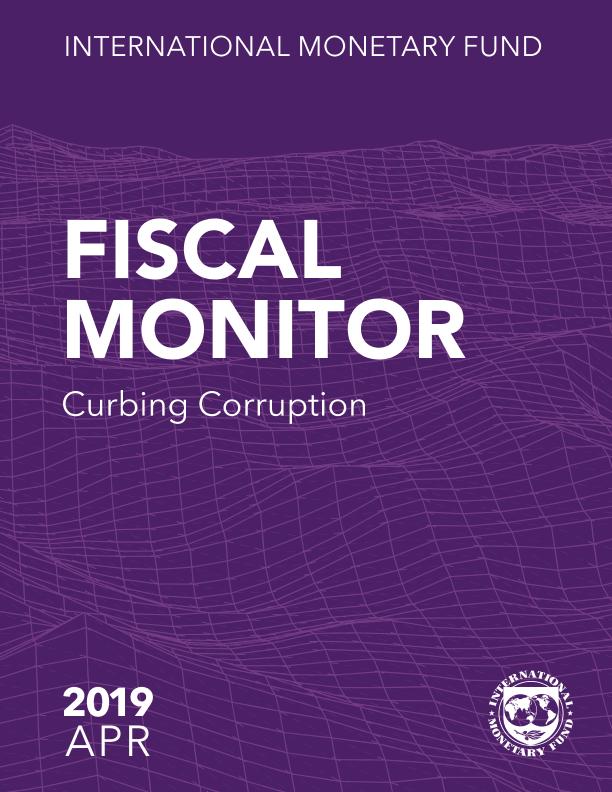Fiscal monitor : curbing corruption

Contenido multimedia no disponible por derechos de autor o por acceso restringido. Contacte con la institución para más información.
| Tag | 1 | 2 | Valor |
|---|---|---|---|
| LDR | 00000cam a22000004b 4500 | ||
| 001 | MAP20190025614 | ||
| 003 | MAP | ||
| 005 | 20190903095254.0 | ||
| 008 | 180424e20190401usa|||| ||| ||eng d | ||
| 020 | $a978-1-49830-222-7 | ||
| 040 | $aMAP$bspa$dMAP | ||
| 084 | $a921.7 | ||
| 245 | 0 | 0 | $aFiscal monitor$b: curbing corruption |
| 260 | $aWashington, DC$bFondo Monetario Internacional$c2019 | ||
| 300 | $a134 p. | ||
| 520 | $aOver the past decade, fiscal policy has focused primarily on macroeconomic stabilization in response to shocks, notably the global financial crisis. Less emphasis has been placed on reforms to foster longterm inclusive growth by adapting to changing demographics, advancing technology, and deepening global integration. In many countries, public and private debt hover near historical peaks, long-term growth and development prospects are uninspiring, and inequality remains striking. With global growth slowing and uncertainty rising, fiscal policy should prepare for possible downturnsbalancing growth and sustainability objectiveswhile also putting more emphasis on reforms to adapt to a fast-changing global economy. The latter will require inclusive and growth-friendly budget recomposition to upgrade tax, social spending, and active labor market policies, as well as investment in infrastructure for better public service delivery. Greater international cooperation is also needed to address multilateral issues, including corporate taxation, climate change, corruption, and, more generally, to achieve the 2030 Sustainable Development Goals (SDGs). | ||
| 650 | 4 | $0MAPA20080573287$aPolítica fiscal | |
| 650 | 4 | $0MAPA20080614133$aFinanzas internacionales | |
| 650 | 4 | $0MAPA20080611897$aPerspectivas económicas | |
| 650 | 4 | $0MAPA20080600709$aDatos macroeconómicos | |
| 650 | 4 | $0MAPA20080606558$aIndicadores económicos | |
| 650 | 4 | $0MAPA20080600648$aCrecimiento económico | |
| 650 | 4 | $0MAPA20080562342$aEstadísticas | |
| 710 | 2 | $0MAPA20080451608$aFondo Monetario Internacional |

